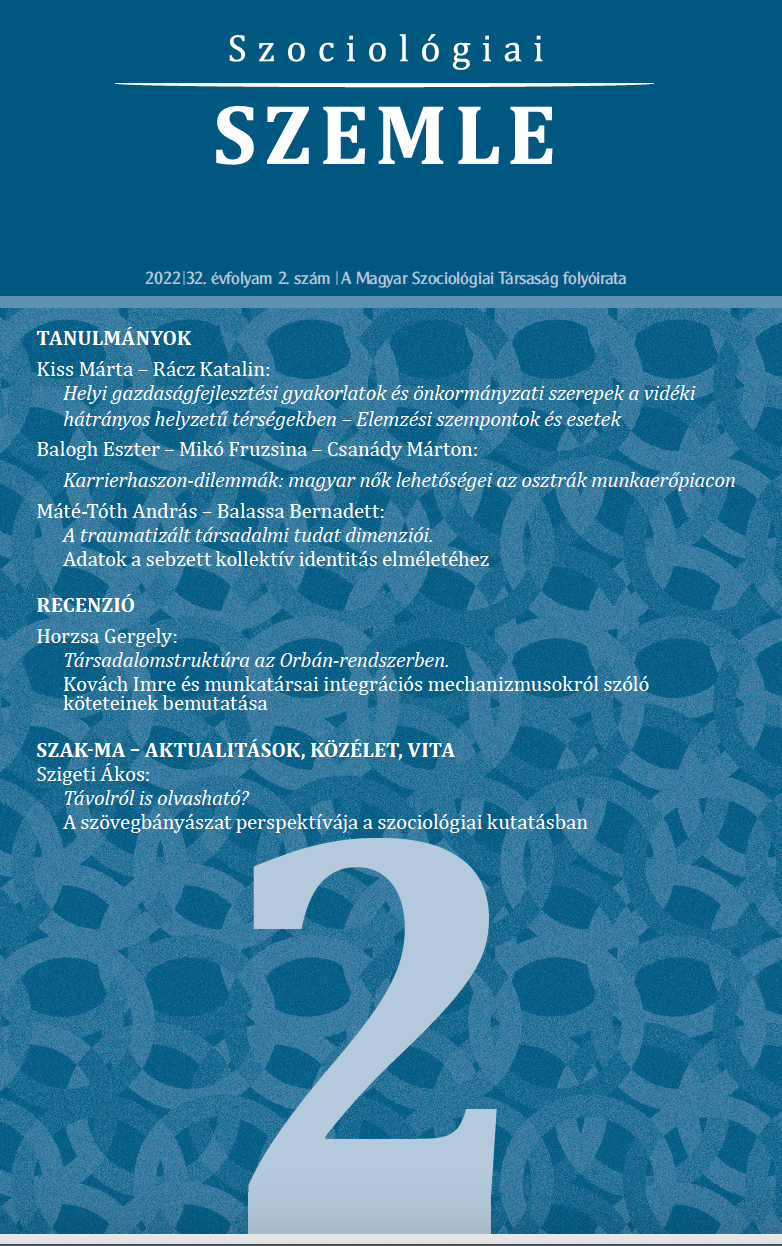Local economic development practices and the role of local government in disadvantaged rural areas
Analytical perspectives and cases
Abstract
In our research, we examined local economic development (LED) practices and the role of local governments in rural, disadvantaged areas. After mapping the international and national literature, we developed a complex system of analytical criteria for the qualitative description and comparison of local economic development practices – consisting of 17 factors and 36 sub-factors – with the help of which we present two HGF practices in Hungary. Although they are located in disadvantaged areas, the examined settlements are characterized by relatively favourable conditions and good resource absorption capacity compared to their environment, they implement their local developments with long-term plans, complex goals and tools, and they react flexibly to current challenges and opportunities. However, partly due to different characteristics – decisive of these the size of the settlement – and related societal challenges, HGF focuses and tools are also different. In connection with the two cases, it is clear that in the absence of significant municipal assets and own financial resources, the examined settlements can rely primarily on external, mostly redistributive tender resources in a strong administrative and financial dependency framework, which fundamentally determines the direction and content of local developments.





